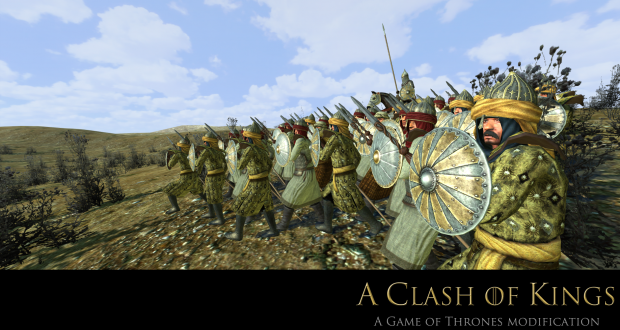
The Picts and Caledonians, occupying the northernmost extremities of Britannia, have clashed with the Roman Empire, frustrating their attempts to annex the entire island. On the fringes of civilisation, at the very edge of Roman Britannia, the Celtic peoples live and fight in defence of their ancient way of life. Nordic men are said to be amongst the tallest in the world, both in body and spirit, and to fight with the cruelty and ferocity of wild beasts. Their homelands are fertile, yet unforgivingly harsh forty days during winter no sun moves across them, and for forty days of summer it circles the horizon without setting. Hailing from the far north, the Nordic tribes are bold people who revel in battle, pillage and destruction. For many settled peoples, these nomadic riders bring only death and the end of days in their wake. As word of the unparalleled accuracy of their mounted archers, and the ferocious speed of their strategic manoeuvres, spreads across the land, so too does fear of their coming. Without settled homes or kings to lead them, they are masters of horsemanship and survival on the road, learning these skills from an early age. Nomads from central Asia have begun major incursions into southeastern Europe. Shifting and beguiling like the very sands of the desert, they will do what they must to secure the future of their people. The two world superpowers - Rome and Persia - watch with interest, and treat when necessary, but the desert kingdoms answer to no one. The Tanukhids - a nomadic people - roam the Levant and, like their Lakhmid cousins, are fiercely independent and proud of their way of life. Further north, on the edge of the Sassanid Empire, the Lakhmids live a defiantly Arabian existence at al-Hira, just a stone’s throw from Ctesiphon. Tucked into the very corners of the known world, Aksum and Himyar feud constantly yet become staggeringly wealthy from the Silk Road trade that passes through their lands. Weaker tribes will be trampled into extinction, but the strong will thrive in foreign lands, laying the foundations of kingdoms and cultures that will last millennia.Ī far cry from the civilised society of Constantinople, and just on the periphery of the Persian kings, are the proud and resolute desert kingdoms of Arabia and Africa. Whether seeking the riches of established empires or fleeing the nomadic invaders, hundreds of thousands of people have been uprooted and now seek new lands and new lives away from the Roman Empire's borderlands. Though many factors influence the great migrations currently occurring across Europe, chief amongst them is the Hunnic incursions from the steppes. As Roman control in the northwest of its Empire begins to falter, these great tribal confederations are ready and eager to exploit any opportunity for expansion that is presented to them. Although many have become federates of the Roman Empire in return for their land, they remain fierce warriors who value their independence highly. The Germanic tribes were the first of many people from beyond the frontiers to settle within Roman territory. The very same ambition that shaped the Eternal City’s birth and rise to domination is now the only thing standing between it and annihilation. Roman ambition however, should never be underestimated. However, now it is divided, and the East and West Roman Empires are mere shadows of their former - united - glory, as internal disputes, usurpers and would-be invaders on all sides threaten to tear them apart completely. Sassanid armies, however, excel in siege conditions - either when besieging enemy cities or when defending their own, and with heavy cataphract cavalry as their backbone, the Sassanids are a formidable battlefield opponent.Īt its greatest extent, the Roman Empire stretched from Mesopotamia to the coasts of the Atlantic.


However, as its expansion pushes against the eastern fringes of Roman territory, either subjugation by or war with Rome seems inevitable.

Built from the ashes of the Parthian Empire by its conqueror, Ardashir I, the Sassanid Empire has revived Iranian culture in Persia after an extended period of Hellenisation.


 0 kommentar(er)
0 kommentar(er)
